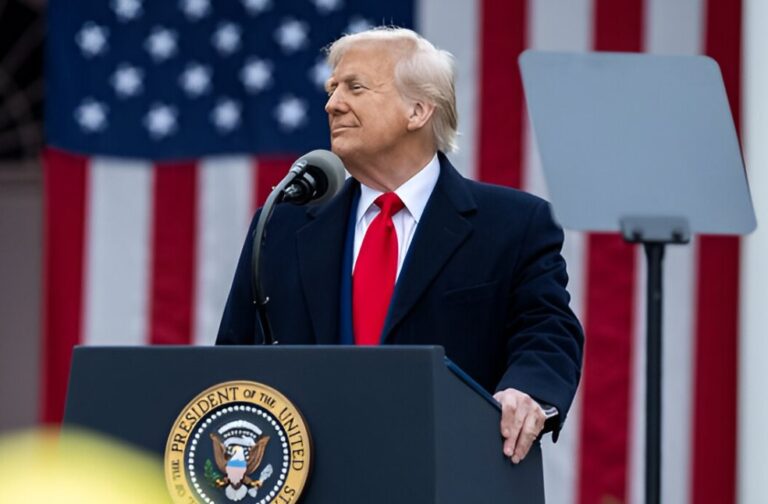Washington, D.C.: U.S. President Donald Trump has announced a broad set of tariffs, asserting that the new measures would increase the American economy and protect domestic industries. Implemented via executive order, the tariffs are expected to have significant global economic repercussions.
A senior White House official disclosed that a “baseline” tariff of 10 percent will be applied to all imports into the U.S., effective April 5. The tax will be imposed on companies importing foreign goods, a move that could lead to increased costs for consumers. Several countries will be subject only to this base rate, including the United Kingdom, Singapore, Brazil, Australia, New Zealand, Turkey, Colombia, Argentina, El Salvador, United Arab Emirates, and Saudi Arabia.
In addition to the baseline tariff, approximately 60 countries identified as “worst offenders” will face extremely higher duties. The White House cites high tariffs on U.S. goods, non-tariff trade barriers, and policies deemed detrimental to American economic interests as reasons for the tougher stance.
These tariffs, set to take effect on April 9, include 20 percent on the European Union, 54 percent on China (including previous tariffs), 46 percent on Vietnam, 36 percent on Thailand, 24 percent on Japan, 49 percent on Cambodia, 30 percent on South Africa, and 32 percent on Taiwan.
🚨 @POTUS signs an Executive Order instituting reciprocal tariffs on countries throughout the world.
It’s LIBERATION DAY in America! pic.twitter.com/p7UnfE617B
— Rapid Response 47 (@RapidResponse47) April 2, 2025
Canada and Mexico will not be subject to the 10 percent baseline tariff, as both nations have already faced trade measures under Trump’s presidency. Instead, the White House will continue to handle trade relations with both countries through previous executive orders, which had imposed a 25 percent tariff on all imports from these nations, with certain exemptions and delays.
One of the most immediate measures announced is a new 25 percent tariff on all foreign-made automobiles, which took effect at midnight local time. The administration argues that this move will reinforce domestic auto manufacturing and reduce reliance on foreign-made vehicles.
As global markets react to the sweeping tariffs, analysts predict significant shifts in trade relationships and potential retaliatory measures from affected countries. The full economic impact of the tariffs remains to be seen.



